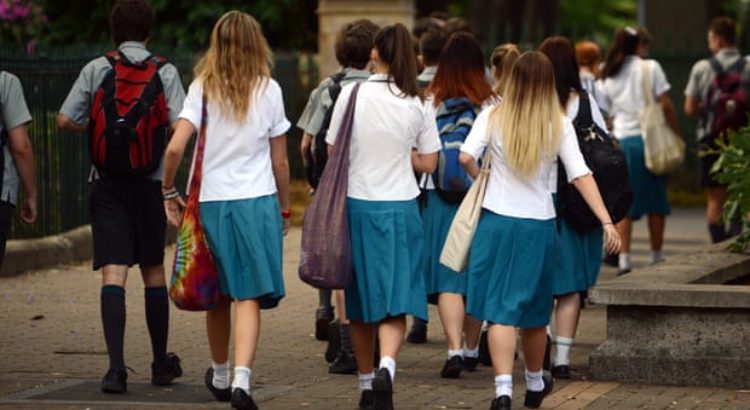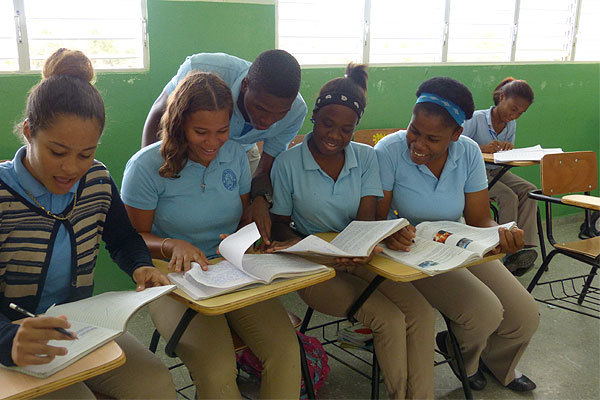Africa/ 26.07.2019/ Source: www.newtimes.co.rw.
A group of six students from African Leadership University, during their first year at the campus, were challenged by their leaders to work on a business idea that will see them create job opportunities for other young people out there.
According to them, because of the skills, the ideas, resources and the time they had as students, they were going to make it, or so they thought.
Surprisingly, when they started working on the idea, which was using certain raw materials to produce papers, they ended up making more than six trials without coming up with the desired product.
This consumed their time, resources and energy.
Later, it came to their attention that they had less knowledge about how things were supposed to be done and at the same time hadn’t done enough research about what they were going to do.

Educators should ensure that learners are assisted in educational research. File.
“First of all, we didn’t have knowledge on how to develop a business plan, market our products and convince people to buy what we were to make,” says Kevin Shema, one of the students.
Although teachers cannot provide everything to learners when it comes to research, educators believe that students can’t handle everything by themselves either.
The question is, how should educators ensure that learners are assisted as far as doing educational research is concerned?
According to Aime Prince Lionel Murara, the deputy national coordinator in charge of operations and partnership in Education for Nations and Humanitarian Africa (ENHA), educators are one of the key elements in academic institutions, especially when it comes to effective teaching.
He notes that one of the major roles of educators is to help students learn how to solve new and emerging problems, as well as be able to combine multiple perspectives to reach students’ goals.
“They should focus on finding and using information successfully, which is an essential skill for life and work to any learner inside and outside the school environment,” he says.
However, Murara says the good news is that in this 21st Century, students can be ahead of teachers in terms of discovering new things.
Learners have more information at their fingertips than before, which means the teacher can just come in to guide them, he says.
Depending on the age of the student, Diana Nawatti, the head teacher at Mother Mary Complex School in Kigali, believes that opting for an activity that involves all the students in class is important, adding that a teacher can decide on whether it will be teacher or student-centred learning.
She explains that this is important because it helps the teacher find out what is really needed for their students to work and come up with something meaningful.
She points out that teachers should understand that schooling students on research is paramount, and when the above is observed, it makes things easier on both sides.
Besides, Nawatti notes that it’s vital to create time for this particular activity.
This, according to her, helps and gives ample time for students to focus on analysing and synthesising information, rather than the mechanics of the research process.
Another point, the head teacher says, is that it’s also common to find out that most learners end up trusting everything they get from the internet, as most of them don’t take time to fully evaluate their sources.
When enough time is given with guidance from teachers, she says it’s easy for students to come up with relevant and well-researched ideas that will help not only at school but also when they face the real world.
She adds that depending on the age of a student, it’s the role of the teacher to make sure whatever the students are searching is secure and educative.
Freedom Kabera, a law student at University of Kigali, is of the view that educators should thrive to help learners by finding and getting them good and reliable sources for research.
When it comes to secondary research, he says it’s easy to find information that is not accurate and sometimes may not have the facts, and this is where an educator comes in to guide students.
Alternatively, he says, it’s important for institutions to subscribe to learning materials for their students and even have a well-equipped library that will see students succeed as far as educational research is concerned.
“Educators should learn how to be patient and resilient, keeping in mind that there are challenges when it comes to such assignments,” adds Kabera.
In order to achieve good teaching, Nawatti points out that the skilful use of well-chosen questions to engage and challenge learners, and to consolidate understanding, is an important feature, as is the effective use of assessment learning, especially when it comes to research.
Murara says Rwanda’s education is perfectly observed to be on a progressive advancement. Students in primary and secondary schools are able to carry out different research methodologies by the aid of computers, tablets, and libraries.
The main purpose of the research, he says, is to get deep into the topic so that something helpful can be churned out, which can be helpful for everybody and used in that particular niche sector.
Way forward
“Many students do not understand that research is an important aspect in their academic enrolment,” Murara says.
This is why teachers should try their best to build up a wall of inspirational encouragement to support students in their path of carrying out different research measures.
This, he says, can be done by providing periods meant for research, especially regarding various courses.
“Research is not only helpful to students because teachers are also able to easily understand the students’ views, which is, therefore, simultaneously beneficial,” he says.
Alphonse Uworwabayeho, a lecturer of mathematics at University of Rwanda, says teaching students with no idea regarding the topic is more complicated than having at least some knowledge on what is to be taught.
He says this is why teachers should, therefore, facilitate students in enhancing themselves towards various research methodologies with a firm enclosure.
Meanwhile, Murara notes that insufficiency of research materials is the first challenge that prohibits research from developing further.
In some schools, he says, there is low or no access to libraries as well as computer devices to support them with research.
Moreover, Uworwabayeho points out that accuracy is also a challenge due to the fact that the information, mainly on websites, is provided by people and there is no guarantee of relevance or accuracy.
“This is why analysis and critical thinking are both necessary in carrying out research,” he notes.
As far as research among students is concerned, the lecturer says inaccuracy and insufficiency of resources take the lead in gaps intended to restrict the efficiency of research.
On the other hand, Murara says teachers are also considered among the major beneficiaries of research.
He says this can be highlighted under the fact that there is a big difference between the yield of a teacher who does research and a teacher who doesn’t do research.
“Knowledge has no limitations; different sources can, therefore, be gathered to shape smart students, ready to stand against different challenges facing the world, under the surveillance of an educator,” adds Murara.
Source of the notice: https://www.newtimes.co.rw/lifestyle/role-research-boosting-education










 Users Today : 3
Users Today : 3 Total Users : 35460134
Total Users : 35460134 Views Today : 5
Views Today : 5 Total views : 3418788
Total views : 3418788